"Competing the Thoughts" of Modern Agricultural Technologies in Shijiazhuang with Chinese and Russian Experts
"Competing the Thoughts" of Modern Agricultural Technologies in Shijiazhuang with Chinese and Russian Experts
Complementary Advantages and Resource Sharing
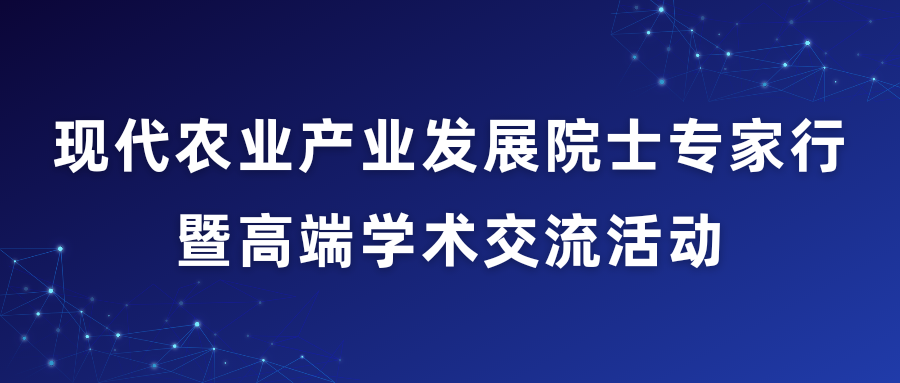
Cihang Film News (Reporters: Wei Shengzu, Li Yizhen)
On the afternoon of April 17th, agricultural experts from Russia engaged in in-depth discussions on topics related to fruit tree frost protection, herb cultivation, and other agricultural matters in Luquan District, Shijiazhuang.
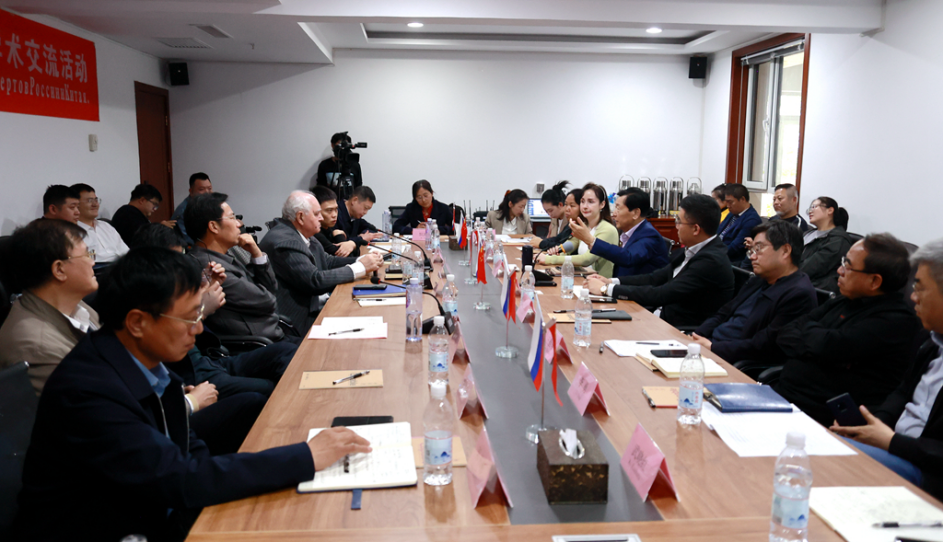
Experts in attendance engaged in a roundtable discussion. Photograph by Li Yizhen
This event is part of the "Modern Agricultural Industry Development Academician and Expert Visit," organized by the Science and Technology Bureau of Shijiazhuang City and hosted by the Hebei International Talent Exchange Association and Hebei Qiquan Tourism Development Co., Ltd.
More than 30 participants attended the exchange event, including: Academician Vladimir Petritchenko from the Russian Academy of Sciences Academician Chen Quanzhou from the Russian Academy of Sciences Li Congmin, former Deputy Director of the Hebei Provincial Department of Science and Technology Lu Yanhui, Deputy Director of the Science and Technology Bureau of Shijiazhuang City Wang Yuzhong, Party Secretary of the Hebei Forestry and Grassland Science Research Institute Yu Dong, President of the Hebei International Talent Exchange Association Mu Yu, General Manager of Hebei Qiquan Tourism Development Co., Ltd. Representatives from Hebei Academy of Agricultural and Forestry Sciences, Hebei Academy of Forestry and Grassland Sciences, Shijiazhuang Academy of Agricultural and Forestry Sciences, Yuaquan Farmers' Professional Cooperative in Luquan District, and the Luquan District Tomato Association. These participants engaged in the exchange activities and discussions.
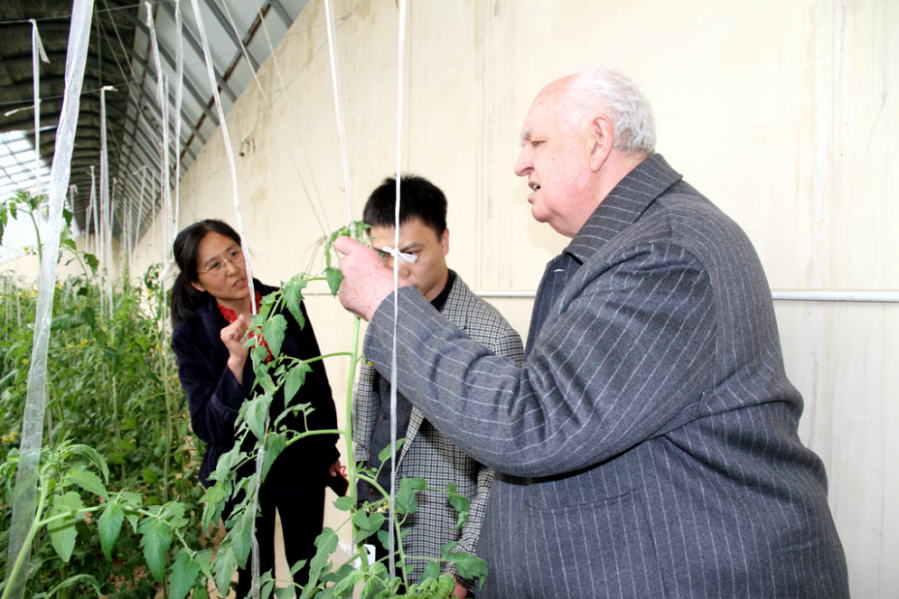
Russian Academy of Sciences Academician Vladimir Petritchenko (right) inspecting the growth of tomatoes at the Qiquan Planting Base in Qiquan. Photo by Li Yizhen.
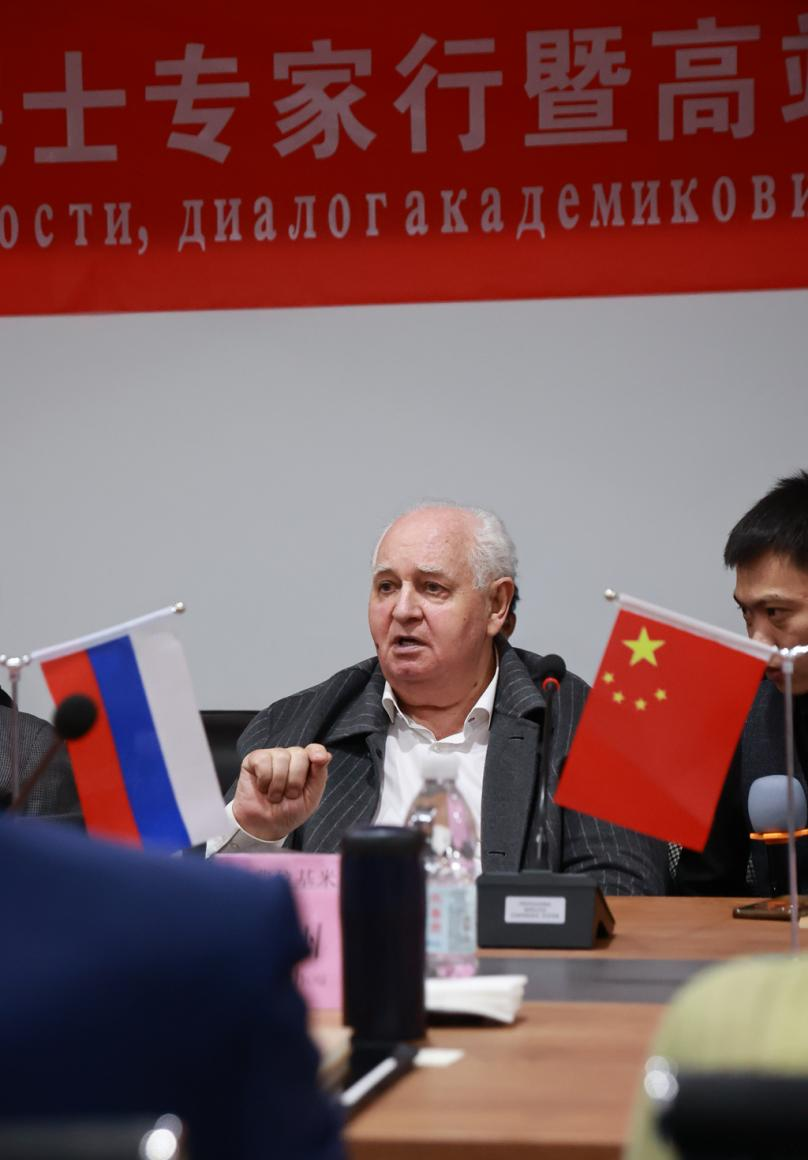
Russian Academy of Sciences Academician Vladimir Petritchenko answering questions about fruit tree growth. Photo by Li Yizhen.
The attending experts visited the vegetable planting base and the 5G Internet of Things (IoT) agricultural exhibition hall of Hebei Qiquan Tourism Development Co., Ltd. in Luquan and had discussions with frontline technical staff. The experts highly praised the company's exploration of using IoT technology to improve the quality of modern agricultural cultivation.
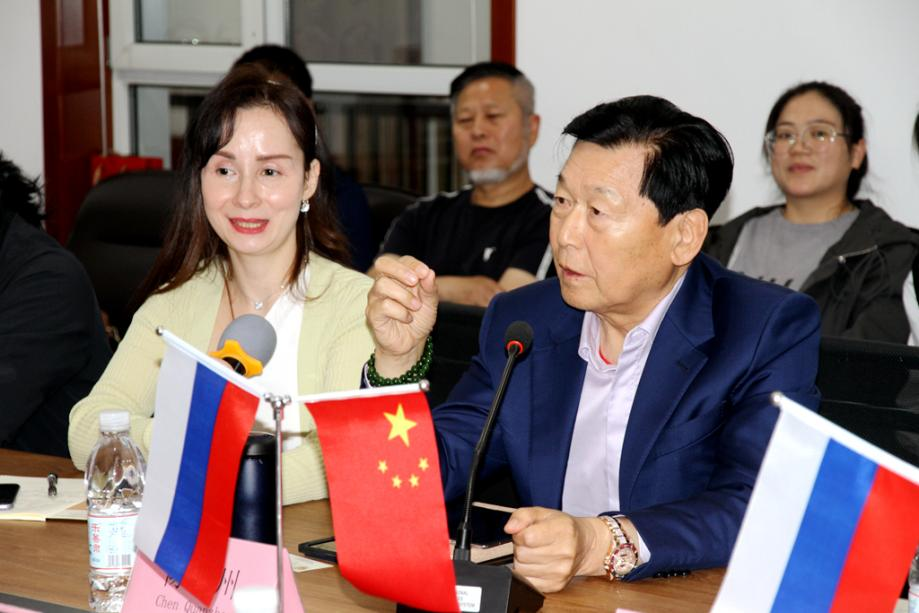
Russian Academy of Sciences Academician Chen Quanzhou (on the right), addresses questions about Sino-Russian traditional medicine exchange and mutual learning. Photo by Li Yizhen
"We've encountered some bottlenecks in tomato cultivation, and we've heard that there are many new varieties in Russia. Could we import some of them to Hebei?"
"Russia has high latitudes and a vast territory. How do you address the issue of frost damage to fruit trees and fruit during the flowering season?"
Following the visit to the farm, a symposium was held at Hebei Qiquan Tourism Development Co., Ltd., where experts from provincial and municipal agricultural and forestry departments raised questions related to their work.
"We have many large tomato varieties that are currently popular among consumers. They are different from Chinese varieties but can be introduced as long as the growing conditions are suitable. I can facilitate the introduction," candidly answered Academician Vladimir Petrovich, addressing the question.
Regarding concerns about late spring frosts causing frost damage to fruit trees, Academician Vladimir Petrovich said that preventing late spring frosts is a common issue. In Russia, they also face this problem. He added, "In addition to conventional physical protection and chemical methods, we are using a newly developed organic silicon. It is a plant energy regulator that has shown a significant effect in preventing frost damage to plants in trials in Shandong, Sichuan, and other provinces. It can also reduce heavy metal residues."
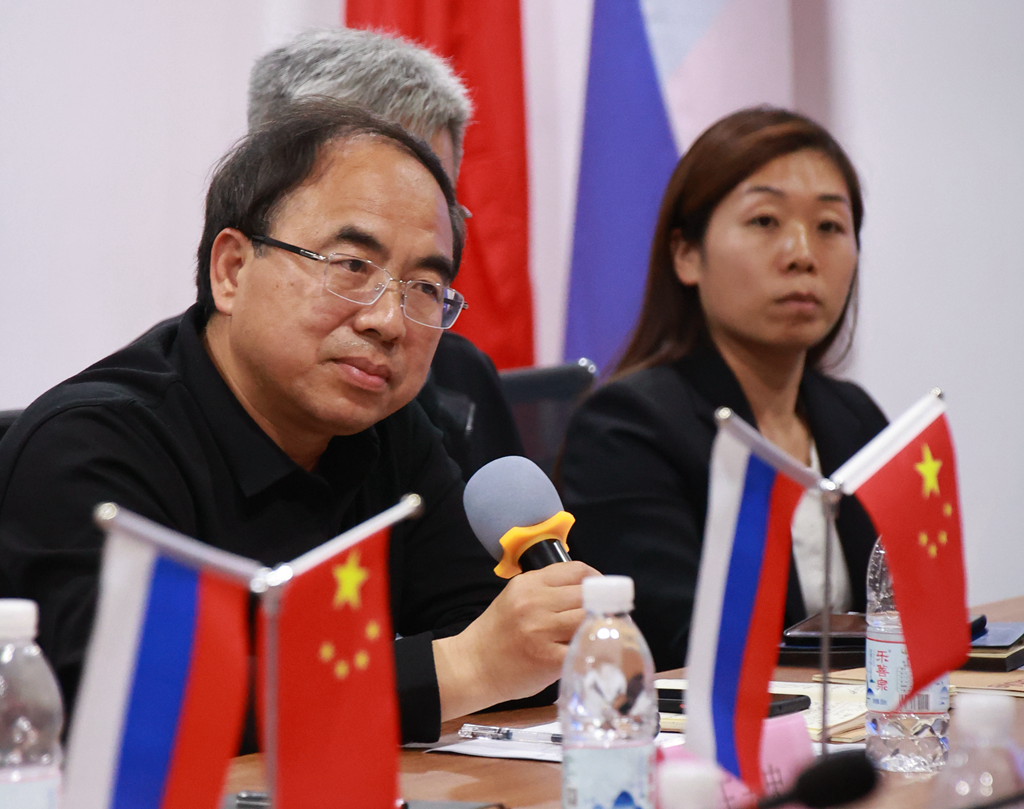
Wang Shuanma (on the left), chief agronomist and vice president of Shijiazhuang Academy of Agricultural and Forestry Sciences, asked questions on site. Photo by Li Yizhen
"I heard that traditional Russian medicine also extensively uses herbal remedies. How does it differ from Chinese herbal medicine in terms of cultivation, and is it possible to cultivate it in China?", a Chinese expert asked.
"Yes, due to regional differences, many herbal species in Russia are unique and of great value. Traditional Russian herbal medicine also has distinctive theories. They can complement and learn from each other effectively when combined with Chinese traditional medicine." Academician Chen Quanzhou said. In recent years, Academician Chen Quanzhou has been devoted to the modernization of Chinese traditional medicine and the cultural exchange between Chinese and foreign medicine. He has also been discussing medical projects suitable for Hebei with Russian experts. "The Taihang Mountains in the western part of Hebei Province run through the North China Plain. The diverse topography and climate conditions in many areas are suitable for cultivating Russian herbs. We are exploring the introduction of high-value Russian herbs with medicinal properties to contribute to the rural revitalization and greening of the Taihang Mountains in this region." Academician Chen Quanzhou added.

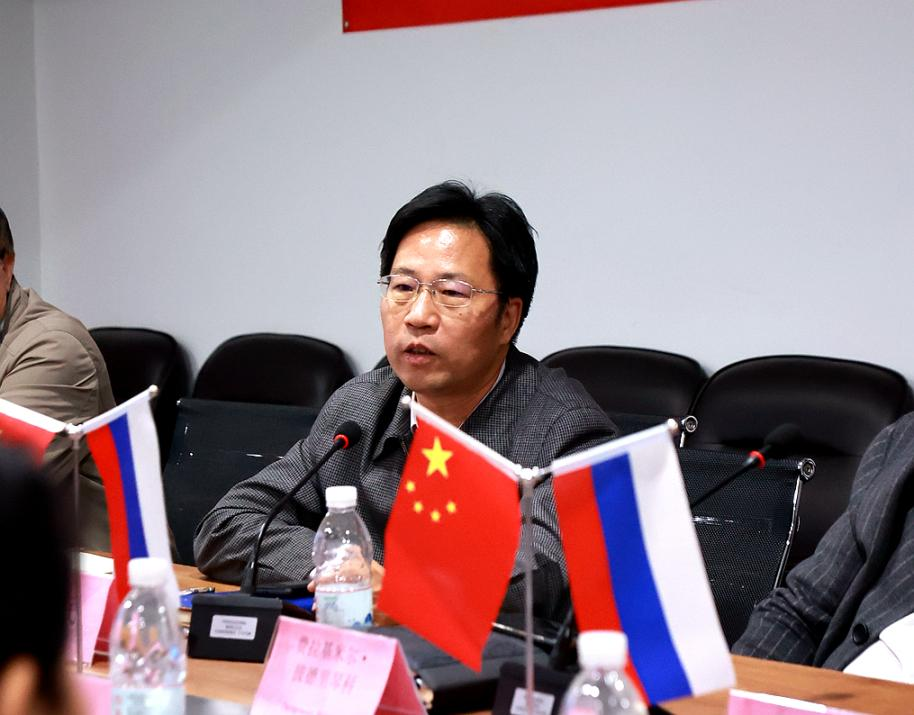
Li Congmin, former deputy director of the Hebei Provincial Department of Science and Technology, delivered a speech. Photo by Li Yizhen
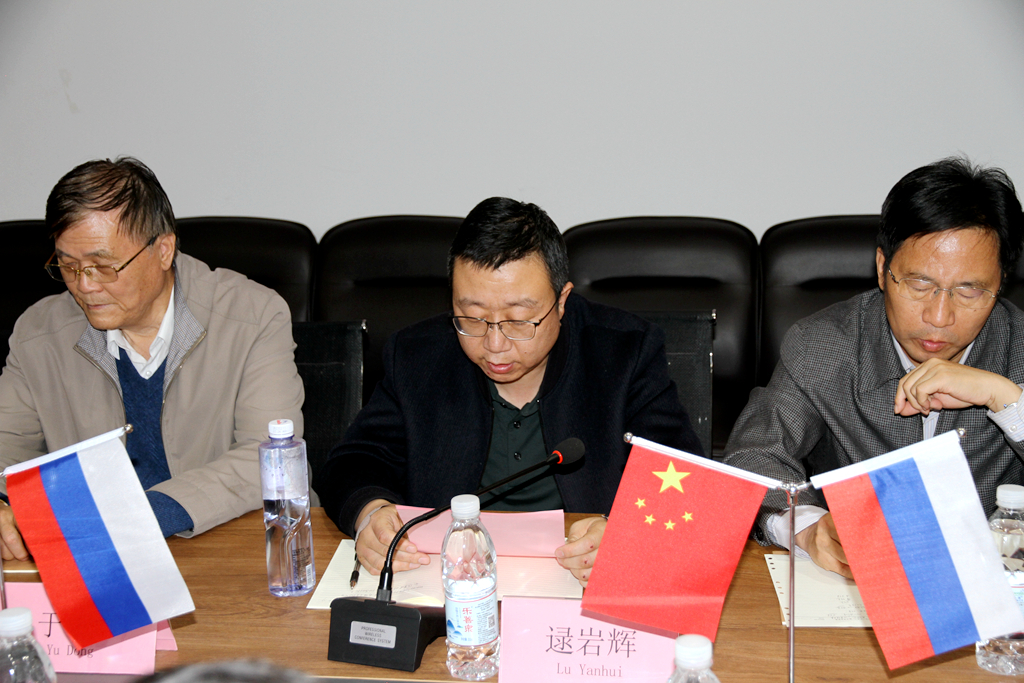
Lu Yanhui (middle), deputy director of Shijiazhuang Municipal Science and Technology Bureau, delivered a speech. Photo by Li Yizhen
At the discussion forum, questions and answers flowed, creating a warm atmosphere, and time passed quickly, with the discussion lasting for over three hours. "Tomorrow, I will visit your orchard, and can we discuss the issue of late spring frost on-site?" "That's great, it's exactly what we need!" Vladimir Petrovich Pecherkin's openness was welcomed by Chinese experts.
During the discussion, Mu Yu, General Manager of Hebei Qiquan Tourism Development Co., Ltd., invited Academician Vladimir Petrovich Pecherkin and Academician Chen Quanzhou to serve as development consultants for Qiquan Company, and both academicians accepted the invitation.

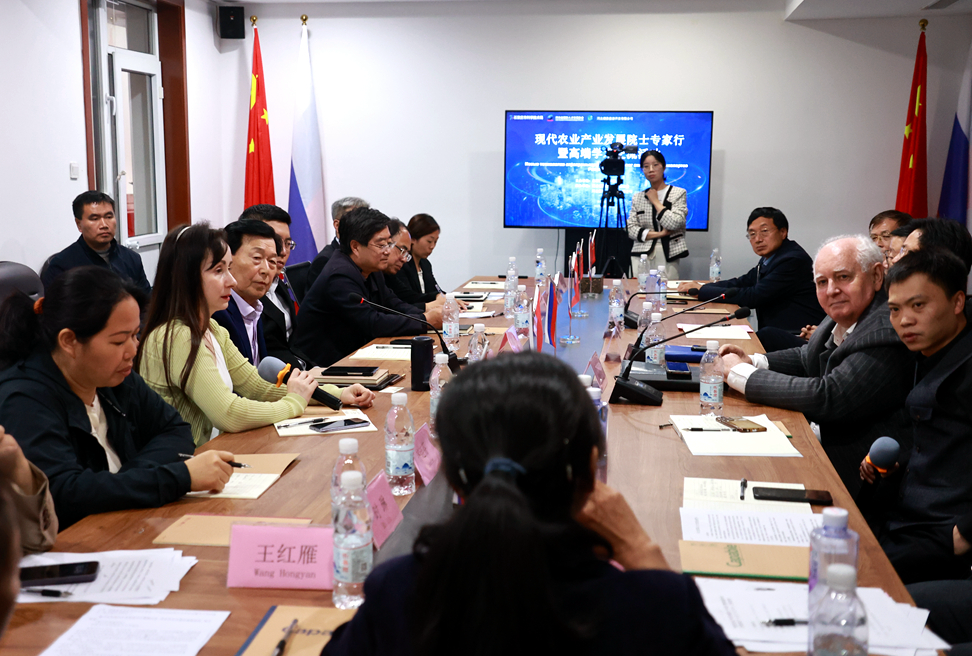
The atmosphere at the symposium was warm. Photo by Li Yizhen
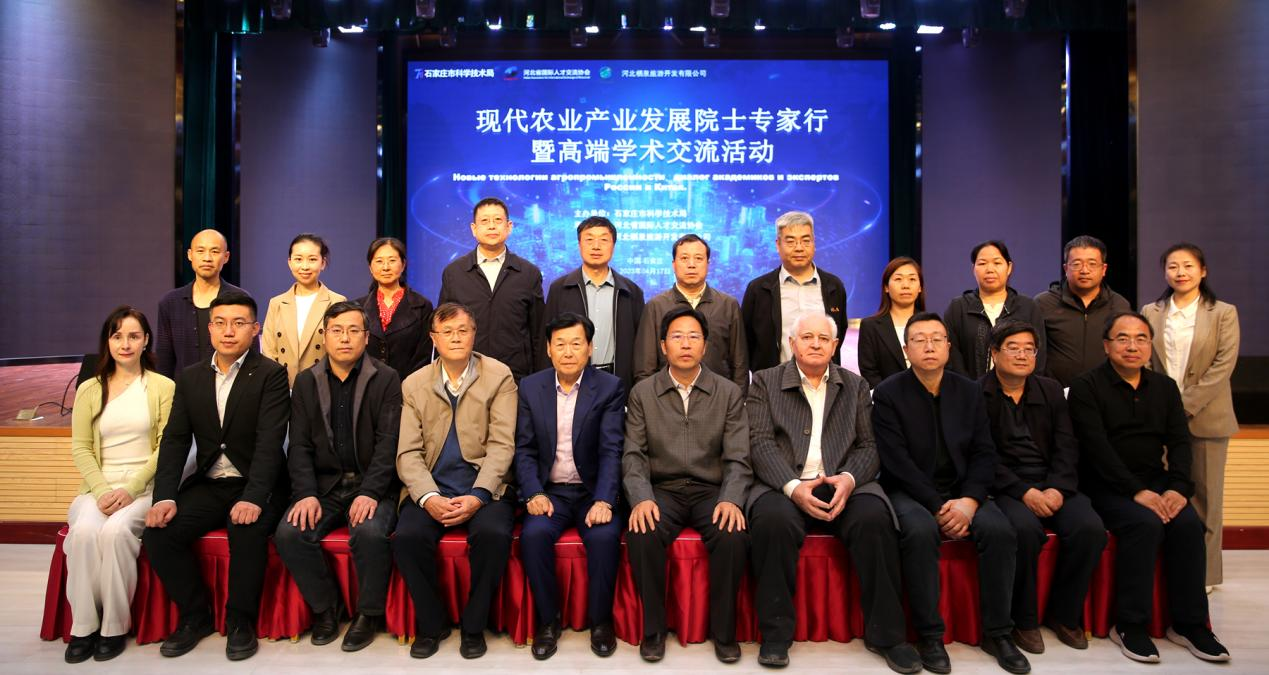
A group photo of leaders attending the meeting and experts and scholars from China and Russia. Photo by Li Yizhen
"We have gained a lot, and China and Russia have different regional conditions and technological advantages, offering many areas for mutual learning. We hope for more exchanges in the future," said Li Yong, Director of the Pear Research Laboratory at the Shijiazhuang Fruit Tree Research Institute of Hebei Academy of Agriculture and Forestry Sciences.

